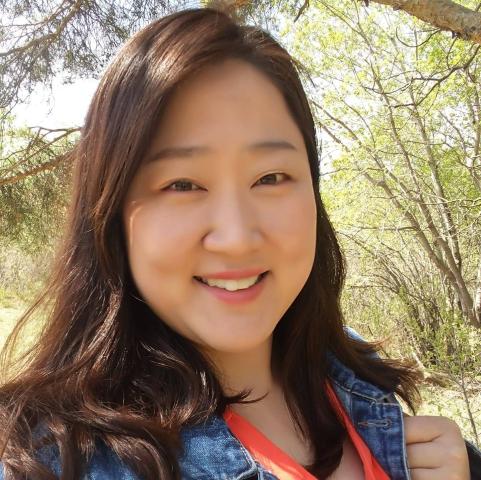There are times when I think that living as a Korean in Canada is like being a magpie in Canada.

Learning
What is your favourite bird? Robins, which bring the news of spring? Blue jays, a symbol of Canada’s best baseball team?
Then, how about magpies?
You can see magpies everywhere in Alberta. And I am so grateful for this. The magpie is a bird that is so much loved by Koreans. For example, in 1964, a Korean newspaper surveyed which bird should be the national bird of Korea, and the magpie took first place. It’s because it is considered a lucky bird in Korea. Koreans believe that when a magpie cries in the morning, good news or a good guest will come.
Living in Canada, magpies have been a great comfort whenever I miss my country.
However, they are often regarded as loud and nuisance birds in Canada. If you google the magpie, the following question comes up: How do I get rid of magpies in my yard?
There are times when I think that living as a Korean in Canada is like being a magpie in Canada.
Since the COVID-19 outbreak, hostility toward all Asians in North America has increased noticeably, and particularly toward people of Chinese descent. Here is one of my experiences.
One day, my husband and I went to a shopping mall in the city of Lethbridge where we live. After my shopping was done, my husband left me for 10 minutes to do his shopping. While I was waiting for him, two White men came close to me and said “Chinese” in my ears with a contemptuous tone. At that time, I was frozen, literally frozen.
You might think that it was a trivial thing. However, it really feels terrible to know that someone actually can hate me because of my skin colour, race, or the ethno-racial features that I share with Chinese-descendant peoples. No one deserves to be mistreated because of this reason.
The city of Lethbridge has a sad and racist history. During World War II, when Canada went to war with Japan in 1942, Japanese citizens were declared “enemy aliens.” Around 22,000 Japanese Canadians living on the West Coast, of which three-quarters were born in Canada, were forced from their homes. They were sent to work on sugar beet farms in areas around Lethbridge such as Picture Butte, Coalhurst, Diamond City, Coaldale, Raymond, and Magrath. Also, Lethbridge had a Japanese internment camp.
You might wonder why I, who was born in Korea, am sharing this story with you. Before coming to Canada, I didn’t know what the meaning of living as an Asian was. I am Korean, even though here in Canada I am often regarded as Chinese, Japanese, or Filipino. No matter what, people view me as a foreigner. And I always live with a deep-seated fear that, depending on the circumstances, I might be banished and hated.
Koreans experience being treated as invisible or non-present in Canada. And Koreans in the United Church have had similar experiences of feeling non-present. For instance, a Korean Canadian I know attended a predominantly White church for several years but never had a chance to introduce his Korean language and culture in worship or at another other time. As well, in my ministerial experience in rural areas, I have been in situations where the important decisions seemed to be made by White leaders in the church.
I hope that Koreans and other racially marginalized groups will not forget that they are God’s blessings in this land of Canada. If the magpie is a bird that brings good news in Korea, it can also be such a bird in Canada.
Faith Reflection
Look at the birds of the air: they neither sow nor reap nor gather into barns, and yet your God feeds them. Are you not of more value than they? And which of you by worrying can add a single hour to your span of life?
(Matthew 6:26‒27)
Without God’s grace and the strength that God gives me, I might fall into despair. Yet, whenever I am discouraged, these words of Jesus help me. Like the eyes of Jesus on a sparrow, I know that he watches me and cherishes me wherever I am.
Living It Out
Currently, three new Korean families and one Filipino family have been attending our church since I began serving Fort Macleod-Granum Pastoral Charge. For East Asians, the Lunar New Year is a major holiday. My church has embraced a new tradition of eating Ddeokguk, the traditional New Year Korean rice cake soup after the Sunday service on Lunar New Year. During Asian Heritage Month, we go to a Chinese restaurant, then watch an Asian movie together. We also have had a Korean cooking class, where the White members of my church learn how to make Korean foods.
Do you think your community of faith could adopt similar practices to be more intentionally intercultural with the various cultures of your neighbours?
—MiYeon Kim (she/her) is an ordained minister serving at Fort Macleod-Granum Pastoral Charge in Chinook Winds Regional Council. She was admitted into the ministry of The United Church of Canada in 2018 from the Presbyterian Church in the Republic of Korea. Currently she is a member of the Admission Board of the Office of Vocation and is one of the creators of UnitedWeDance-UCCan, a YouTube channel for children’s worship dance videos.
The views contained within these blogs are personal and do not necessarily reflect those of The United Church of Canada.